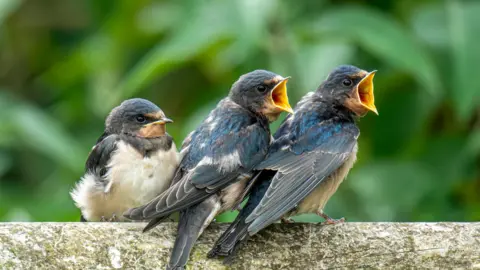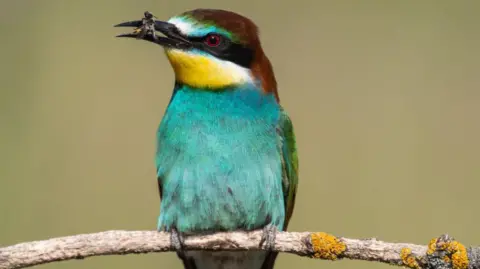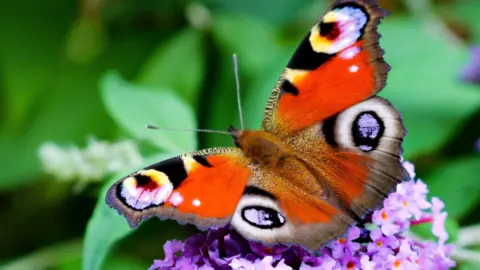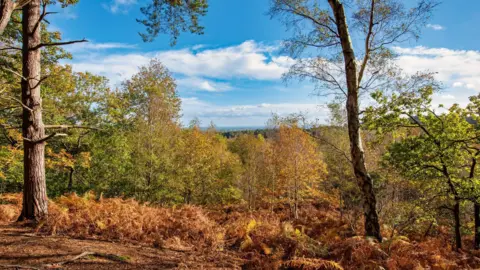 Getty Images
Getty ImagesWith what’s being called a mini-heatwave looming for the UK, it’s not just humans looking forward to warmer weather.
The warm spell is expected to give a temporary boost to nature as migratory birds arrive from afar and butterflies stretch their wings.
The British Trust for Ornithology (BTO) says a succession of milder winters and wetter springs are all contributing to change in the natural world.
While a brief warm spell won’t make much difference to the natural world overall, it could be a bonus for nature lovers.
 Getty Images
Getty Images“On the plus side, better weather is more inviting for us to get out and enjoy the spring. Dawn chorus is at its peak at the minute and calm, warm mornings are perfect for enjoying it,” says Jon Carter of the BTO.
The Met Office says a brief spell of warmth at the end of April isn’t a bad thing for wildlife – and there shouldn’t be much impact to water sources such as ponds.
“Climate change is already having a big impact on our wildlife, but a temporary blip like this is an end of April dividend for wildlife,” says the Met Office’s Grahame Madge.
Some wildlife accelerates its activity with warm spring weather, so people may see natural areas near them teaming with life this coming week.
Butterflies and birds may be particularly prominent, Mr Madge adds.
Some studies suggest warm weather means birds can breed earlier in the year and do not need to incubate their young for as long.
Migratory birds – such as swallows and swifts – that return to the UK because there are more insects to feed on in warmer climes, may be coming back sooner. The Met Office says a swallow was reported in southern England before March this year.
Warm weather can also see butterflies emerge. Hotter days earlier in the year can bring out red admirals, previously an exclusively migratory insect.
The peacock and small tortoiseshell are among the first to spread their wings, with more butterflies emerging from April onwards.
Dragonflies start to be seen around this time, too.
There could also be some sightings of rare visitors such as the exotic European bee-eater, which have recently begun nesting in the UK.
 Getty Images
Getty ImagesWildlife charities say it’s a great time to get out and about and enjoy nature, but people should be on their guard against accidentally starting a fire.
Oliver Fry of Surrey Wildlife Trust says conditions are incredibly dry on the heathlands of Surrey, which creates “tinderbox conditions”.
The wild, flat landscapes dotted with gorse and heather are known for their wildlife, including rare species like the sand lizard, woodlark and silver-studded blue butterfly.
Earlier this month, conservationists warned that some of the UK’s rarest wildlife is being “torched alive” and pushed closer to extinction after weeks of intense grass fires.
Anne McCall, director of RSPB Scotland, says climate change is driving more regular wildfires of greater intensity, and especially so in spring.
“It is not just vegetation that gets destroyed by wildfire,” she says. “This is a critical time of year for our native wildlife – with birds nesting and other animals such as amphibians and reptiles coming out of winter dormancy and starting to breed.”
 Getty Images
Getty ImagesOn the coasts, conservation experts say there has been a crop of sightings of whales and dolphins close to British shores – and though it’s difficult to pin down a reason, warming seas and climate change are likely to be a factor.
“Seeing whales and dolphins in the wild is always an awesome experience but seeing more of them, and more unusual species around UK coast may not be such a good thing,” says Danny Groves from the charity Whale and Dolphin Conservation.
Heatwaves and increases in sea temperatures can cause some whales to roam far from their usual areas just to survive, he adds.
Follow Helen on X and on Bluesky.



